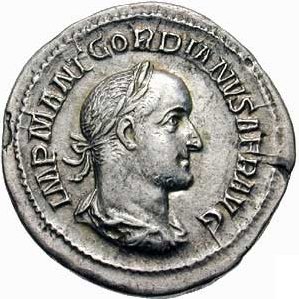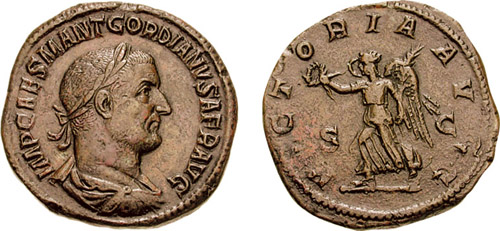|
Barracks Emperors
A barracks emperor (also called a "soldier emperor") was a Roman emperor who seized power by virtue of his command of the army. Barracks emperors were especially common in the period from 235 through 284 AD, during the Crisis of the Third Century that began with the assassination of Severus Alexander. Beginning with Maximinus Thrax, there were approximately fourteen barracks emperors in 33 years, producing an average reign of a little over two years apiece. The resulting instability in the imperial office and the near constant state of civil war and insurrection threatened to destroy the Roman Empire from within and left it vulnerable to attack from external adversaries. Style of the 3rd century Unlike previous emperors who had seized power in military ''coups d'état'' (Vespasian and Septimius Severus, both from traditional middle-class Equestrian stock), the barracks emperors tended to be low-class commoners (often from outlying parts of the empire); the first barracks emperor, ... [...More Info...] [...Related Items...] OR: [Wikipedia] [Google] [Baidu] |
Probus Musei Capitolini MC493
Probus may refer to: People * Marcus Valerius Probus (c. 20/30–105 AD), Roman grammarian * Marcus Pomponius Maecius Probus, consul in 228 * Probus (emperor), Roman Emperor (276–282) * Probus of Byzantium (–306), Bishop of Byzantium from 293 to 306 * Andronicus, Probus, and Tarachus, Saint Probus of Side, martyr of the Diocletian persecution (c. 304 AD) * Sextus Claudius Petronius Probus (''floruit'' 358–390), a powerful Roman senator of the fourth century * Anicius Petronius Probus, Roman consul in 406 * Arcadius and companions, Probus, martyr of 437 * Probus (son of Magnus), Gallo-Roman senator of the fifth century * Anicius Probus (''fl.'' 459), a Roman senator of the 5th century * Probus (consul 502), consul in 502 * Probus (consul 513), Flavius Probus, consul in 513 * Anastasius (consul 517), Flavius Anastasius Paulus Probus Sabinianus Pompeius, consul in 517 * Flavius Anicius Probus Iunior, consul in 525 * Rufius Gennadius Probus Orestes, consul in 530 * Henryk IV Probus ... [...More Info...] [...Related Items...] OR: [Wikipedia] [Google] [Baidu] |
Constantius III
Constantius III was briefly Western Roman emperor of the West in 421. He earned his position as Emperor due to his capability as a general under Honorius, achieving the rank of ''magister militum'' by 411. That same year, he suppressed the revolt of Constantine III, a Roman general who had declared himself emperor. Constantius then went on to lead campaigns against various barbarian groups in Hispania and Gaul, recovering much of both for the Western Roman Empire. Constantius married Honorius's sister Galla Placidia in 417, a sign of his ascendant status, and was proclaimed co-emperor by Honorius on 8 February 421. He reigned for seven months before dying on 2 September 421. Life Early life Constantius was born in Naissus, Moesia (present-day Niš, Serbia) of Illyrian origin. Constantius served as a general under Honorius, rising to the rank of ''Magister militum'' (Master of the Soldiers) by 411. Revolt of Constantine III In 411 Constantius was sent by Honorius to put ... [...More Info...] [...Related Items...] OR: [Wikipedia] [Google] [Baidu] |
Philip The Arab
Philip the Arab ( la, Marcus Julius Philippus "Arabs"; 204 – September 249) was Roman emperor from 244 to 249. He was born in Aurantis, Arabia, in a city situated in modern-day Syria. After the death of Gordian III in February 244, Philip, who had been Praetorian prefect, achieved power. He quickly negotiated peace with the Persian Sassanid Empire and returned to Rome to be confirmed by the Senate. During his reign, the city of Rome celebrated its millennium. Philip was betrayed and killed at the Battle of Verona in September 249 following a rebellion led by his successor, Gaius Messius Quintus Decius. Philip's reign of five years was uncommonly stable in a turbulent third century. During the late 3rd century and into the 4th, it was held by some churchmen that Philip had been the first Christian emperor; he was described as such in Jerome's ''Chronicon'' (''Chronicle''), which was well known during the Middle Ages, in Orosius' highly popular ''Historia Adversus Paganos ... [...More Info...] [...Related Items...] OR: [Wikipedia] [Google] [Baidu] |
Sabinian (proconsul)
Marcus Asinius Sabinianus or Sabinian was proconsul of the Roman province of Africa. In 240 he led a revolt against Gordian III. He proclaimed himself emperor, but after being defeated by the governor of Mauretania, his supporters in Carthage Carthage was the capital city of Ancient Carthage, on the eastern side of the Lake of Tunis in what is now Tunisia. Carthage was one of the most important trading hubs of the Ancient Mediterranean and one of the most affluent cities of the classi ... surrendered him to the imperial authorities. References Meckler, Michael L., "Gordian III (238–244 A.D.)", ''De Imperatoribus Romanis''* 240s deaths Year of birth unknown 3rd-century Roman usurpers Crisis of the Third Century Asinii Self-proclaimed monarchy {{AncientRome-bio-stub ... [...More Info...] [...Related Items...] OR: [Wikipedia] [Google] [Baidu] |
Gordian III
Gordian III ( la, Marcus Antonius Gordianus; 20 January 225 – February 244) was Roman emperor from 238 to 244. At the age of 13, he became the youngest sole emperor up to that point (until Valentinian II in 375). Gordian was the son of Antonia Gordiana and Junius Balbus, who died before 238. Antonia Gordiana was the daughter of Emperor Gordian I and younger sister of Emperor Gordian II. Very little is known of his early life before his acclamation. Gordian had assumed the name of his maternal grandfather in 238. Rise to power In 235, following the murder of Emperor Alexander Severus in Moguntiacum (modern Mainz), the capital of the Roman province Germania Superior, Maximinus Thrax was acclaimed emperor. In the following years, there was a growing opposition against Maximinus in the Roman Senate and amongst the majority of the population of Rome. In 238, a rebellion broke out in the Africa Province, where Gordian's grandfather and uncle, Gordian I and II, were proclaimed jo ... [...More Info...] [...Related Items...] OR: [Wikipedia] [Google] [Baidu] |
Balbinus
Decimus Caelius Calvinus Balbinus (died 238 AD) was Roman emperor with Pupienus for three months in 238, the Year of the Six Emperors. Origins and career Not much is known about Balbinus before his elevation to emperor. It has been conjectured that he descended from Publius Coelius Balbinus Vibullius Pius, the consul ordinarius of 137, and wife Aquilia. If this were true, he was also related to the family of Q. Pompeius Falco, which supplied many politicians of consular rank throughout the 3rd century, and to the 1st-century politician, engineer and author Julius Frontinus. He was born around 178. He was a patrician from birth, and was the son (either by birth or adoption) of Caelius Calvinus, who was legate of Cappadocia in 184. He was one of the Salii priests of Mars. According to Herodian he had governed provinces, but the list of seven provinces given in the unreliable ''Historia Augusta'', as well as the statement that Balbinus had been both Proconsul of Asia and of Af ... [...More Info...] [...Related Items...] OR: [Wikipedia] [Google] [Baidu] |
Pupienus
Marcus Clodius Pupienus Maximus ( 168 238 AD) was Roman emperor with Balbinus for 99 days in 238, during the Year of the Six Emperors. The sources for this period are scant, and thus knowledge of the emperor is limited. In most contemporary texts he is referred to by his cognomen "Maximus" rather than by his second nomen (family name) Pupienus (). Origins and early career The ''Historia Augusta'', whose testimony is not to be trusted unreservedly, paints Pupienus as an example of advancement through the ''cursus honorum'' due to military success. It claims he was the son of a blacksmith, was adopted by one Pescennia Marcellina (otherwise unknown), and who started his career as a '' Centurio'' ''primus pilus'' before becoming a tribunus militum, and then a praetor. Pupienus's career was allegedly impressive, serving a number of important posts during the reign of the Severan dynasty throughout the late 2nd and early 3rd centuries. This included assignment as Proconsul of the s ... [...More Info...] [...Related Items...] OR: [Wikipedia] [Google] [Baidu] |
Gordian II
Gordian II ( la, Marcus Antonius Gordianus Sempronianus Romanus; 192 – April 238) was Roman emperor with his father Gordian I in 238 AD, the Year of the Six Emperors. Seeking to overthrow Maximinus Thrax, he died in battle outside Carthage. Since he died before his father, Gordian II had the shortest reign of any Roman emperor, at 22 days. Early life Born 192, Gordian II was the only known son of Gordian I, who was said to be related to prominent senators. His praenomen and nomen ''Marcus Antonius'' suggest that his paternal ancestors received Roman citizenship under the triumvir Mark Antony, or one of his daughters, during the late Roman Republic. Gordian's cognomen "Gordianus" suggests that his family origins were from Anatolia, especially Galatia and Cappadocia. According to the notoriously unreliable '' Historia Augusta'', his mother was a Roman woman called Fabia Orestilla, born circa 165, who the ''Historia'' claims was a descendant of emperors Antoninus Pius an ... [...More Info...] [...Related Items...] OR: [Wikipedia] [Google] [Baidu] |
Gordian I
Gordian I ( la, Marcus Antonius Gordianus Sempronianus Romanus; 158 – April 238 AD) was Roman emperor for 22 days with his son Gordian II in 238, the Year of the Six Emperors. Caught up in a rebellion against the Emperor Maximinus Thrax, he was defeated by forces loyal to Maximinus, and he committed suicide after the death of his son. Family and background Little is known about the early life and family background of Gordian I. There is no reliable evidence on his family origins. Gordian I was said to be related to prominent senators of his time. His praenomen and nomen ''Marcus Antonius'' suggested that his paternal ancestors received Roman citizenship under the triumvir Mark Antony, or one of his daughters, during the late Roman Republic. Gordian's cognomen ‘Gordianus’ also indicates that his family origins were from Anatolia, more specifically Galatia or Cappadocia. According to the ''Historia Augusta'', his mother was a Roman woman called Ulpia Gordiana and his fath ... [...More Info...] [...Related Items...] OR: [Wikipedia] [Google] [Baidu] |
Odoacer
Odoacer ( ; – 15 March 493 AD), also spelled Odovacer or Odovacar, was a soldier and statesman of barbarian background, who deposed the child emperor Romulus Augustulus and became Rex/Dux (476–493). Odoacer's overthrow of Romulus Augustulus is traditionally seen as marking the end of the Western Roman Empire as well as Ancient Rome. Though the real power in Italy was in his hands, he represented himself as the client of the emperor in Constantinople, Zeno. Odoacer often used the Roman honorific patrician, granted by Zeno, but was referred to as a king ( la, rex) or duke ( la, dux) in many documents, so is not clear which was his actual charge. He himself used the title of king in the only surviving official document that emanated from his chancery, and it was also used by the consul Basilius. Odoacer introduced few important changes into the administrative system of Italy. He had the support of the Roman Senate and was able to distribute land to his followers without muc ... [...More Info...] [...Related Items...] OR: [Wikipedia] [Google] [Baidu] |
Orestes (Roman Soldier)
OrestesNo other names are known, according to J.R. Martindale ''The Prosopography of the Later Roman Empire'' vol. II pp. 811–812. Cambridge University Press, 1980 (died 28 August 476) was a Roman general and politician of Pannonian ancestry, who held considerable influence in the late Western Roman Empire. Biography Born to a Roman aristocratic family from Pannonia Savia, Orestes was son of Tatulus, a pagan, and son-in-law to Romulus, who served as ''comes'' in the Western Roman Empire. After Pannonia was ceded to Attila the Hun, Orestes joined Attila's court, reaching high position as a secretary (''notarius'') in 449 and 452. In 449 Attila sent him twice to Constantinople with ambassador Eslas.Priscus, ''History'', fragment 7.Priscus, ''History'', fragment 8. In 475, Orestes was appointed ''magister militum'' and '' patricius'' by Western Roman Emperor Julius Nepos. This proved to be a mistake on the part of Nepos. By 28 August 475, Orestes, at the head of the ''foedera ... [...More Info...] [...Related Items...] OR: [Wikipedia] [Google] [Baidu] |
Gundobad
Gundobad ( la, Flavius Gundobadus; french: Gondebaud, Gondovald; 452 – 516 AD) was King of Burgundy, King of the Burgundians (473 – 516), succeeding his father Gundioc of Burgundy. Previous to this, he had been a Patrician (ancient Rome), patrician of the moribund Western Roman Empire in 472 – 473, three years before its collapse, succeeding his uncle Ricimer. He is perhaps best known today as the probable issuer of the ''Lex Burgundionum'' legal codes, which synthesized Roman law with ancient Germanic customs. He was the husband of Caretene. Early life Gundobad seized the title of Patrician when his uncle Ricimer, who had been the power behind the throne for the Western Empire, died on 18 August 472. According to John of Antioch, Gundobad had previously executed the deposed emperor Anthemius on his uncle's orders. Once in power, Gundobad elevated the current Count of the Domestics, Glycerius, to the position of Western Roman Emperor. However, not long after this Gundo ... [...More Info...] [...Related Items...] OR: [Wikipedia] [Google] [Baidu] |
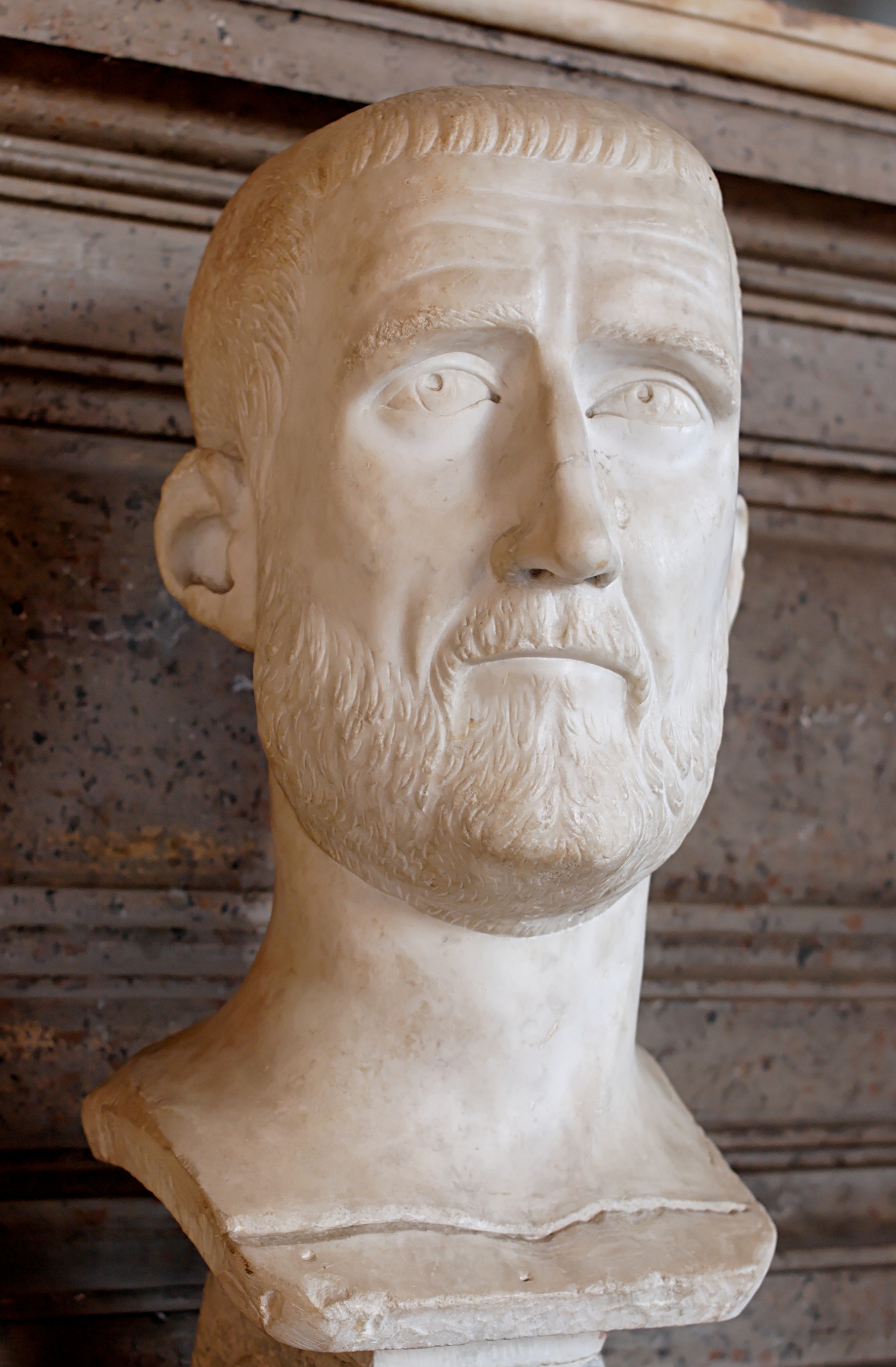
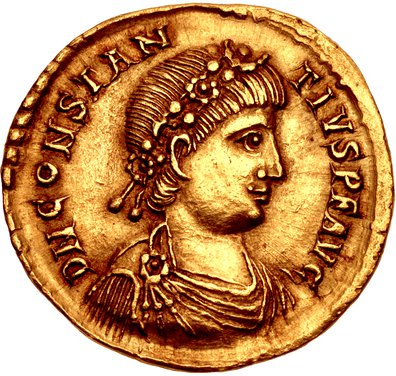
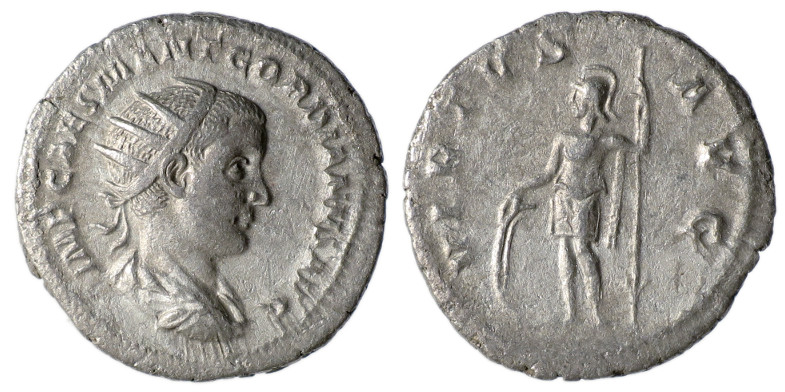
.jpg)
